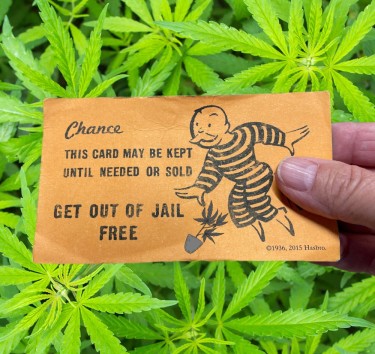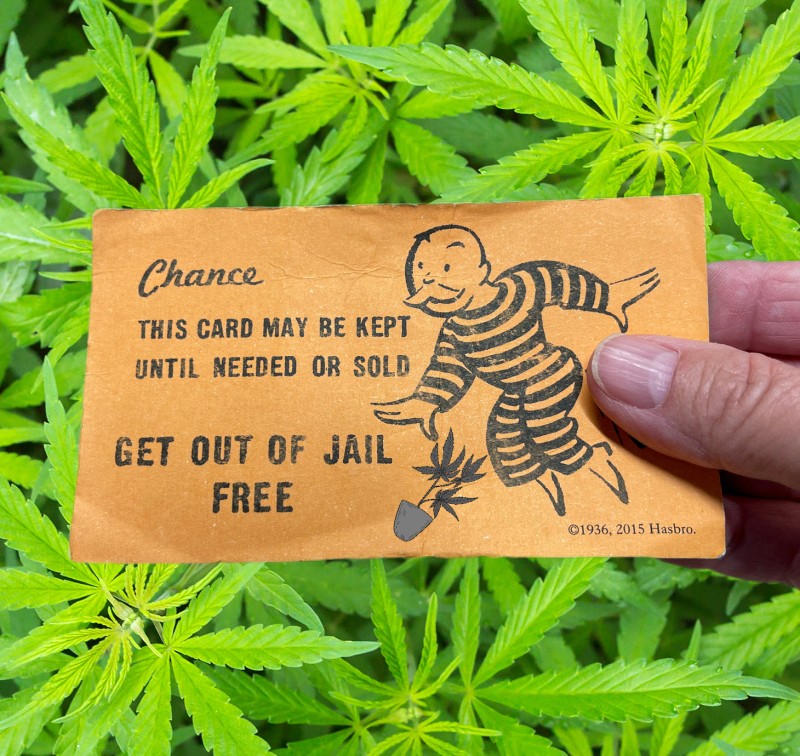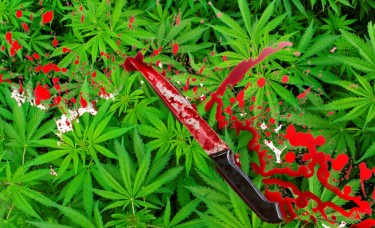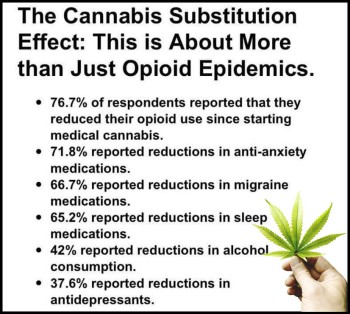
Commit Murder, Blame Weed, Get Community Service
I have previously written about a woman who claimed that she underwent cannabis psychosis which led her to brutally murder her boyfriend. In the intriguing case of Spejcher, a seemingly mild sentence was handed down for a violent act, raising eyebrows and sparking debates across legal and social circles. Spejcher, accused of a violent crime, was meted a surprisingly lenient punishment of just 100 days of community service. This sentence, lenient in comparison to the gravity of the alleged act, has opened a Pandora's box of questions and concerns about the justice system's approach to violent crimes, particularly when juxtaposed with the often severe penalties imposed for non-violent cannabis offenses.
This article delves into the profound implications of employing cannabis-induced psychosis as a legal defense in violent crime cases. It offers a critical examination of how this defense stands in stark contrast to the harsh legal repercussions faced by individuals for non-violent cannabis-related activities. This juxtaposition not only sheds light on potential inconsistencies in legal judgments but also prompts a re-evaluation of existing cannabis laws and their application in the justice system. As we explore this complex issue, we aim to unravel the layers of legal, ethical, and societal implications that arise when cannabis intersects with the law in such contrasting manners.
Understanding Cannabis Psychosis
Cannabis psychosis, a term that often sparks debate within both medical and legal circles, refers to a state of mental disorder attributed to the excessive or prolonged use of cannabis. This condition is characterized by symptoms such as hallucinations, delusions, and a loss of touch with reality, resembling schizophrenia or acute psychotic disorders. Scientific viewpoints on cannabis-induced psychosis center around the interaction of cannabis, specifically its psychoactive compound THC (tetrahydrocannabinol), with the brain's endocannabinoid system. This system plays a crucial role in regulating mood, perception, and cognitive functions.
Studies have shown a correlation between high-potency cannabis use and an increased risk of psychosis, particularly in individuals with a predisposition to mental health disorders. A landmark study published in The Lancet Psychiatry in 2019 revealed that daily cannabis users, especially those consuming high-potency strains, are at a significantly higher risk of developing psychotic disorders compared to non-users. However, it’s crucial to note that while there’s an association, a direct causal relationship between cannabis use and psychosis remains a subject of ongoing research.
Historically and in recent times, cannabis psychosis has been used as a defense in legal cases, particularly those involving violent crimes. Notably, in some instances, individuals charged with serious offenses have claimed that their cannabis use led to a temporary psychotic state, impacting their judgment and actions. While this defense has occasionally been successful, it remains controversial and highly dependent on expert testimony and psychiatric evaluation.
Experts in psychiatry and substance abuse are divided on the legitimacy and frequency of cannabis-induced psychosis. Some argue that the condition is relatively rare and often overemphasized in the context of anti-cannabis rhetoric. Others, however, caution about the potential risks, especially with the increasing potency of cannabis strains available in the market. They emphasize the need for awareness and education regarding the possible mental health implications of cannabis use, especially among young people and those with a history of mental illness.
While cannabis psychosis is a recognized condition within the medical community, its prevalence, impact, and implications continue to be explored. The scientific consensus suggests a need for a balanced approach that recognizes the potential risks without overstating them, ensuring informed decisions by both users and policymakers.
Life for selling weed, community service for murder!
In the ongoing discourse about cannabis legalization and criminal justice, an alarming inconsistency emerges when we compare the punishment meted out for cannabis-related offenses to that for violent crimes. The rhetoric of anti-cannabis proponents often hinges on the argument that legalizing cannabis "sends the wrong message" to society, suggesting a grave moral and social lapse. However, this argument crumbles under scrutiny, especially when contrasted with cases where violent criminals receive disproportionately lenient sentences, such as a mere 100 days of community service for a heinous act like stabbing someone 108 times and killing an animal.
To understand the flawed logic in this approach, let's first dissect the claim that legalizing cannabis sends the wrong message. This argument is rooted in the outdated and debunked notion that cannabis is inherently harmful and morally corruptive. It ignores the substantial body of scientific evidence indicating the medical benefits of cannabis and overlooks the social and economic advantages of its legalization. More crucially, it perpetuates a stigma that has long fueled the war on drugs, leading to the disproportionate incarceration of individuals, often from marginalized communities, for minor, non-violent cannabis offenses.
Now, juxtapose this with the treatment of violent crimes in the justice system. When individuals who commit acts of extreme violence, such as Spejcher in the scenario described, receive minimal sentences like community service, it sends a deeply troubling message. It implies that our society and legal system place a lower value on human life and physical safety than on maintaining draconian drug laws. This discrepancy in sentencing not only undermines public faith in the justice system but also raises serious questions about societal values and priorities.
The disparity becomes even more glaring when considering the potential danger posed by individuals with violent tendencies. If someone capable of such brutal violence is given a slap on the wrist, what assurance does society have that they won't reoffend, especially under the influence of substances like alcohol which are known to impair judgment? It’s a gamble on public safety, predicated on the hope that a short stint of community service will somehow rehabilitate a person who has demonstrated extreme violence.
The Sticky Bottom Line
In the perplexing case of Spejcher, we're left grappling with a conclusion that not only boggles the mind but sets a disturbing precedent. The court's ruling in this case is a stark reflection of a judicial system that appears to have veered off the path of logical jurisprudence. It's a ruling that exposes not just a lack of insight, but a seemingly warped set of priorities that could have far-reaching consequences.
The notion of "cannabis psychosis" being used as a legal defense in a murder case is not just troubling; it's a leap into dangerous territory. This isn't about the effects of cannabis, which have been extensively studied and debated. This is about a legal system that seems all too willing to grasp at straws, turning an isolated incident into a generalized scapegoat. The implications are enormous and alarming.
For years, the cannabis community has fought against misinformation and stigma. Progress has been made in shedding light on the true nature and potential of cannabis. Yet, this ruling feels like a step backward, a nod to the days of reefer madness hysteria. It's not just about the individual case of Spejcher; it's about how this sets a tone for future legal battles. If the courts are willing to accept "cannabis psychosis" as a viable defense in such a serious crime, what's next? Where do we draw the line?
More cases will inevitably arise, and the concern is that this ruling might be misused as a precedent. It’s not cannabis that should be on trial here, but rather a legal system that seems to be floundering in its understanding and application of justice. This isn’t about vindicating cannabis; it’s about ensuring that justice is served based on facts, not unfounded fears or stereotypes.
In essence, this ruling doesn't just question the credibility of the court in this particular case; it shakes the very foundation of our trust in the judicial process. It opens the door for "cannabis psychosis" to become a convenient scapegoat, a legal loophole for serious crimes. This isn't just a cannabis issue; it's a societal one, where the integrity of our legal system is at stake. We must remain vigilant and advocate for judicial decisions based on rationality and justice, not on sensationalized and unscientific notions.






